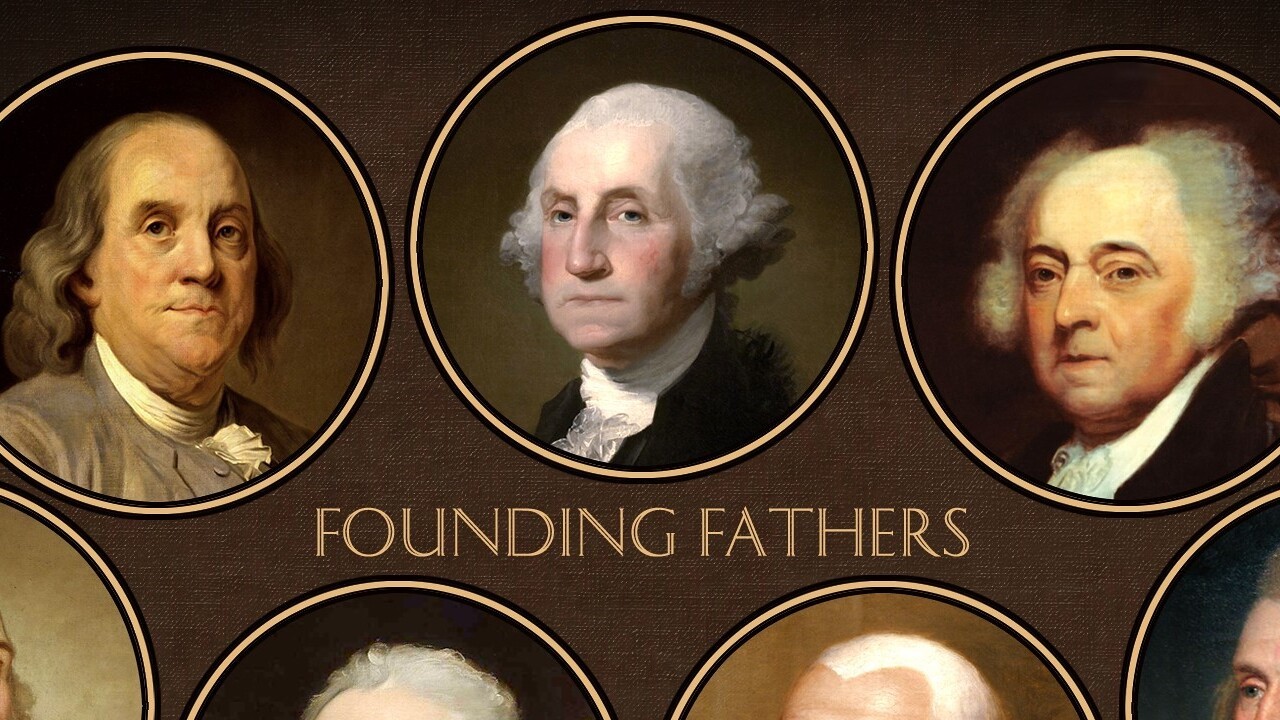In the wake of the recent mass shootings in Buffalo, New York and Uvalde, Texas–two tragic events that will live in infamy–many elected officials, talking heads, and anti-gun rights advocates have pushed for greater gun control measures. As per usual, these misguided gun-control activists recite talking points about the Second Amendment being antiquated and not applying to so-called weapons of war. However, these people are flat-out wrong. The Second Amendment was put into place by the Founding Fathers for the specific reason of preventing a tyrannical government from having a monopoly on the use of force.
Below are a series of quotes from the Founding Fathers on the issue of the Second Amendment:
James Madison (The Federalist Papers): “Notwithstanding the military establishments in the several kingdoms of Europe, which are carried as far as the public resources will bear, the governments are afraid to trust the people with arms. And it is not certain, that with this aid alone they would not be able to shake off their yokes. But were the people to possess the additional advantages of local governments chosen by themselves, who could collect the national will and direct the national force, and of officers appointed out of the militia, by these governments, and attached both to them and to the militia, it may be affirmed with the greatest assurance, that the throne of every tyranny in Europe would be speedily overturned in spite of the legions which surround it.”
Joseph Story: “The militia is the natural defense of a free country against sudden foreign invasions, domestic insurrections, and domestic usurpations of power by rulers.”
Thomas Jefferson (Virginia Constitution): “No free man shall ever be debarred the use of arms.”
Thomas Jefferson (letter to William Stephens Smith, son-in-law of John Adams, December 20, 1787): “What country can preserve its liberties if their rulers are not warned from time to time that their people preserve the spirit of resistance. Let them take arms.”
Thomas Jefferson (Commonplace Book): “The laws that forbid the carrying of arms are laws of such a nature. They disarm only those who are neither inclined nor determined to commit crimes…. Such laws make things worse for the assaulted and better for the assailants; they serve rather to encourage than to prevent homicides, for an unarmed man may be attacked with greater confidence than an armed man.”
Thomas Jefferson (letter to John Cartwright, June 5, 1824): “The Constitution of most of our states (and of the United States) assert that all power is inherent in the people; that they may exercise it by themselves; that it is their right and duty to be at all times armed.”
George Mason (The Debates in the Several State Conventions on the Adoption of the Federal Constitution, June 14, 1788) “To disarm the people…[i]s the most effectual way to enslave them.”
Noah Webster (An Examination of the Leading Principles of the Federal Constitution, October 10, 1787): “Before a standing army can rule, the people must be disarmed, as they are in almost every country in Europe. The supreme power in America cannot enforce unjust laws by the sword; because the whole body of the people are armed, and constitute a force superior to any band of regular troops.”
James Madison, (Annals of Congress 434, June 8, 1789): “The right of the people to keep and bear arms shall not be infringed. A well regulated militia, composed of the body of the people, trained to arms, is the best and most natural defense of a free country.”
Richard Henry Lee (Federal Farmer No. 18, January 25, 1788): “To preserve liberty, it is essential that the whole body of the people always possess arms, and be taught alike, especially when young, how to use them.”
Patrick Henry (Speech to the Virginia Ratifying Convention, June 5, 1778): “Guard with jealous attention the public liberty. Suspect everyone who approaches that jewel. Unfortunately, nothing will preserve it but downright force. Whenever you give up that force, you are ruined…. The great object is that every man be armed. Everyone who is able might have a gun.”
St. George Tucker (Blackstone’s Commentaries on the Laws of England, 1803): “This may be considered as the true palladium of liberty…. The right of self defense is the first law of nature: in most governments it has been the study of rulers to confine this right within the narrowest limits possible. Wherever standing armies are kept up, and the right of the people to keep and bear arms is, under any color or pretext whatsoever, prohibited, liberty, if not already annihilated, is on the brink of destruction.”
Thomas Paine (“Thoughts on Defensive War” in Pennsylvania Magazine, July 1775): “The supposed quietude of a good man allures the ruffian; while on the other hand, arms, like law, discourage and keep the invader and the plunderer in awe, and preserve order in the world as well as property. The balance of power is the scale of peace. The same balance would be preserved were all the world destitute of arms, for all would be alike; but since some will not, others dare not lay them aside. And while a single nation refuses to lay them down, it is proper that all should keep them up. Horrid mischief would ensue were one-half the world deprived of the use of them; for while avarice and ambition have a place in the heart of man, the weak will become a prey to the strong. The history of every age and nation establishes these truths, and facts need but little arguments when they prove themselves.”
Samuel Adams (Massachusetts Ratifying Convention, 1788): “The Constitution shall never be construed to prevent the people of the United States who are peaceable citizens from keeping their own arms.”
Joseph Story (Commentaries on the Constitution of the United States, 1833): “The right of the citizens to keep and bear arms has justly been considered, as the palladium of the liberties of a republic; since it offers a strong moral check against the usurpation and arbitrary power of rulers; and will generally, even if these are successful in the first instance, enable the people to resist and triumph over them.”
Rep. Elbridge Gerry of Massachusetts (Annals of Congress 750, August 17, 1789): “What, Sir, is the use of a militia? It is to prevent the establishment of a standing army, the bane of liberty …. Whenever Governments mean to invade the rights and liberties of the people, they always attempt to destroy the militia, in order to raise an army upon their ruins.”
Alexander Hamilton (Federalist No. 28): “If the representatives of the people betray their constituents, there is then no resource left but in the exertion of that original right of self-defense which is paramount to all positive forms of government, and which against the usurpations of the national rulers, may be exerted with infinitely better prospect of success than against those of the rulers of an individual state. In a single state, if the persons intrusted with supreme power become usurpers, the different parcels, subdivisions, or districts of which it consists, having no distinct government in each, can take no regular measures for defense. The citizens must rush tumultuously to arms, without concert, without system, without resource; except in their courage and despair.”
Alexander Hamilton (Federalist No. 28): “If circumstances should at any time oblige the government to form an army of any magnitude that army can never be formidable to the liberties of the people while there is a large body of citizens, little, if at all, inferior to them in discipline and the use of arms, who stand ready to defend their own rights and those of their fellow-citizens. This appears to me the only substitute that can be devised for a standing army, and the best possible security against it, if it should exist.”
Tench Coxe (Philadelphia Federal Gazette, June 18, 1789): “As civil rulers, not having their duty to the people before them, may attempt to tyrannize, and as the military forces which must be occasionally raised to defend our country, might pervert their power to the injury of their fellow citizens, the people are confirmed by the article in their right to keep and bear their private arms.”
Simeon Howard (Speech to the Ancient and Honorable Artillery Company in Boston, June 7, 1773): “A people who would stand fast in their liberty, should furnish themselves with weapons proper for their defence, and learn the use of them. It is indeed an hard case, that those who are happy in the blessings of providence, and disposed to live peaceably with all men, should be obliged to keep up the idea of blood and slaughter, and expend their time and treasure to acquire the arts and instruments of death. But this is a necessity which the depravity of human nature has laid upon every state. Nor was there ever a people that continued, for any considerable time, in the enjoyment of liberty, who were not in a capacity to defend themselves against invaders, unless they were too poor and inconsiderable to tempt an enemy.”
Thomas Jefferson (State of the Union Address, 1808): “For a people who are free, and who mean to remain so, a well-organized and armed militia is their best security.”
James Madison (First Inaugural Address): “Always remember that an armed and trained militia is the firmest bulwark of republics – that without standing armies their liberty can never be in danger, nor with large ones safe.”
Patrick Henry: “Are we at last brought to such a humiliating and debasing degradation, that we cannot be trusted with arms for our own defense? Where is the difference between having our arms in our possession and under our own direction, and having them under the management of Congress? If our defense be the real object of having those arms, in whose hands can they be trusted with more propriety, or equal safety to us, as in our own hands?”
James Madison (First Inaugural Address): “The safety of these States and everything dear to a free people must depend in an eminent degree on the militia…This arrangement should be formed, too, in time of peace, to be the better prepared for war.”
Patrick Henry: “The great object is, that every man be armed…Every one who is able may have a gun.”
Samuel Adams (Philadelphia Independent Gazetteer, August 20, 1789: “That the said Constitution shall never be construed to authorize Congress to infringe the just liberty of the press or the rights of conscience; or to prevent the people of the United states who are peaceable citizens from keeping their own arms.”
PHOTO: The Founding Fathers. Photo by DonkeyHotey. Attribution 2.0 Generic (CC BY 2.0).
Chris Talgo (CTalgo@heartland.org) is the editorial director and a research fellow at The Heartland Institute, as well as a researcher and contributing editor at StoppingSocialism.com.






